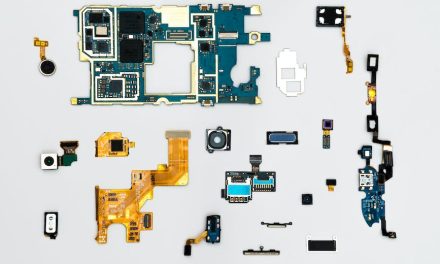Table of Contents
- Introduction
- The Benefits of Personalized Employee Learning Experience in the Workplace
- How AI is Revolutionizing Learning and Development for Employees
- Implementing AI-Powered Personalized Learning Programs for Employee Growth
- Overcoming Challenges in Adopting AI for Personalized Employee Learning Experience
- Q&A
- Conclusion
Unlocking Potential through Personalized Learning: Empowering Employees with AI
Introduction
Introduction:
Personalized Employee Learning Experience: Harnessing AI in Learning and Development
In today’s rapidly evolving business landscape, organizations are recognizing the importance of investing in employee learning and development to stay competitive. However, traditional one-size-fits-all training programs often fail to meet the diverse needs and preferences of employees. This is where the power of Artificial Intelligence (AI) comes into play. By harnessing AI in learning and development, organizations can create personalized employee learning experiences that are tailored to individual needs, interests, and learning styles. This not only enhances employee engagement and satisfaction but also improves learning outcomes and drives organizational success. In this article, we will explore the concept of personalized employee learning experience and delve into how AI can be leveraged to revolutionize learning and development in the workplace.
The Benefits of Personalized Employee Learning Experience in the Workplace

The Benefits of Personalized Employee Learning Experience in the Workplace
In today’s fast-paced and ever-changing business landscape, organizations are constantly seeking ways to stay ahead of the competition. One key aspect that can give them an edge is investing in the learning and development of their employees. However, traditional one-size-fits-all training programs are no longer sufficient in meeting the diverse needs of employees. This is where personalized employee learning experiences come into play, and harnessing the power of artificial intelligence (AI) can greatly enhance this process.
Personalized employee learning experiences offer a tailored approach to training and development, taking into account the unique skills, knowledge, and learning styles of each individual. By leveraging AI, organizations can gather and analyze vast amounts of data to create customized learning paths for employees. This not only ensures that employees receive the specific training they need, but also maximizes their learning potential and engagement.
One of the key benefits of personalized employee learning experiences is increased efficiency. Traditional training programs often involve a significant amount of time and resources, with employees having to go through lengthy courses that may not be relevant to their specific roles. With personalized learning, employees can focus on the areas that are most relevant to their job responsibilities, allowing them to acquire new skills and knowledge more efficiently. This targeted approach also reduces the risk of information overload, as employees are only exposed to the content that is directly applicable to their roles.
Another advantage of personalized employee learning experiences is improved engagement and motivation. When employees feel that their learning needs are being met and that they have control over their own development, they are more likely to be engaged and motivated. AI-powered learning platforms can provide employees with personalized recommendations, suggesting relevant courses and resources based on their individual preferences and goals. This not only enhances their learning experience but also fosters a sense of ownership and empowerment.
Furthermore, personalized employee learning experiences can lead to better retention of knowledge and skills. When employees are actively engaged in their learning and have the opportunity to apply what they have learned in real-world scenarios, they are more likely to retain and apply that knowledge in their daily work. AI can facilitate this process by providing interactive and immersive learning experiences, such as simulations and virtual reality, which allow employees to practice and reinforce their skills in a safe and controlled environment.
Additionally, personalized employee learning experiences can contribute to talent development and succession planning within organizations. By identifying the specific skills and competencies required for different roles, AI can help organizations identify high-potential employees and create personalized development plans for them. This not only ensures a pipeline of skilled talent but also increases employee loyalty and satisfaction, as they see a clear path for growth and advancement within the organization.
In conclusion, personalized employee learning experiences offer numerous benefits for organizations in today’s dynamic business environment. By harnessing the power of AI, organizations can create tailored learning paths that meet the unique needs of each employee, leading to increased efficiency, engagement, retention, and talent development. As technology continues to advance, the integration of AI in learning and development will undoubtedly play a crucial role in shaping the future of work.
How AI is Revolutionizing Learning and Development for Employees
Artificial intelligence (AI) has become a game-changer in various industries, and learning and development (L&D) is no exception. The integration of AI in employee training programs has revolutionized the way organizations approach learning, making it more personalized and effective. This article explores how AI is transforming the learning and development landscape, providing employees with a personalized learning experience that enhances their skills and boosts their performance.
One of the key advantages of AI in L&D is its ability to analyze vast amounts of data quickly and accurately. Traditional training methods often rely on generic content that may not cater to the specific needs of individual employees. However, AI algorithms can process data from various sources, such as performance evaluations, skills assessments, and job requirements, to create personalized learning paths for each employee. By understanding the unique strengths and weaknesses of individuals, AI can recommend relevant training materials and activities that address their specific learning gaps.
Moreover, AI-powered learning platforms can adapt to the pace and preferences of employees. Traditional training programs often follow a one-size-fits-all approach, which may not be suitable for everyone. With AI, employees can learn at their own pace, ensuring that they fully grasp the concepts before moving on. AI algorithms can also track the progress of each employee and provide real-time feedback, allowing them to identify areas that require further attention. This personalized approach not only enhances the learning experience but also increases engagement and motivation among employees.
Another significant benefit of AI in L&D is its ability to deliver content in various formats. People have different learning styles, and AI can cater to these preferences by providing content in the form of videos, interactive modules, quizzes, or simulations. This multi-modal approach ensures that employees can absorb information in a way that suits them best, leading to better retention and application of knowledge. Additionally, AI can leverage natural language processing to provide conversational interfaces, enabling employees to ask questions and receive immediate responses, simulating a personalized learning experience.
Furthermore, AI can facilitate continuous learning by recommending relevant resources and courses based on an employee’s evolving needs and interests. As employees acquire new skills and knowledge, AI algorithms can suggest advanced courses or specialized training programs to further enhance their expertise. This personalized approach to learning not only benefits employees but also helps organizations stay ahead in a rapidly changing business landscape. By continuously updating employees’ skills, organizations can foster innovation and adaptability, ensuring their long-term success.
However, it is important to note that AI should not replace human interaction in the learning process. While AI can provide personalized recommendations and feedback, human trainers and mentors play a crucial role in guiding and supporting employees. The combination of AI and human expertise can create a powerful learning environment that maximizes the potential of employees.
In conclusion, AI is revolutionizing learning and development for employees by providing a personalized learning experience that enhances their skills and performance. Through data analysis, adaptive learning paths, multi-modal content delivery, and continuous learning recommendations, AI is transforming traditional training methods into dynamic and engaging experiences. By harnessing the power of AI, organizations can unlock the full potential of their workforce, ensuring their competitiveness in an ever-evolving business landscape.
Implementing AI-Powered Personalized Learning Programs for Employee Growth
Implementing AI-Powered Personalized Learning Programs for Employee Growth
In today’s fast-paced and ever-evolving business landscape, organizations are constantly seeking ways to enhance employee performance and drive growth. One area that has gained significant attention is learning and development. Companies are realizing the importance of providing personalized learning experiences to their employees to foster continuous growth and improve overall productivity. With the advent of artificial intelligence (AI), organizations now have a powerful tool at their disposal to revolutionize employee learning.
AI-powered personalized learning programs have the potential to transform traditional training methods by tailoring learning experiences to individual employees’ needs and preferences. By leveraging AI algorithms, organizations can analyze vast amounts of data to gain insights into each employee’s learning style, strengths, and areas for improvement. This data-driven approach enables organizations to create customized learning paths that are specifically designed to meet the unique needs of each employee.
One of the key advantages of AI-powered personalized learning programs is their ability to adapt and evolve over time. Traditional training programs often follow a one-size-fits-all approach, which may not be effective for all employees. With AI, organizations can continuously monitor and analyze employee performance, allowing the system to make real-time adjustments to the learning content and delivery methods. This ensures that employees are always engaged in relevant and meaningful learning experiences, maximizing their potential for growth.
Furthermore, AI-powered personalized learning programs can provide employees with instant feedback and recommendations for improvement. Through the use of AI algorithms, the system can assess employee performance in real-time and provide targeted feedback to help them address any knowledge gaps or areas of weakness. This immediate feedback loop not only accelerates the learning process but also empowers employees to take ownership of their development and make continuous improvements.
Another significant benefit of AI-powered personalized learning programs is their scalability. Traditional training methods often require significant resources and time to deliver consistent learning experiences to a large number of employees. With AI, organizations can automate the learning process, allowing them to reach a broader audience without compromising the quality of the learning experience. This scalability ensures that all employees have access to personalized learning opportunities, regardless of their location or role within the organization.
However, implementing AI-powered personalized learning programs is not without its challenges. Organizations must ensure that they have the necessary infrastructure and technology in place to support such initiatives. This includes robust data analytics capabilities, secure storage systems, and AI algorithms that can effectively analyze and interpret the data. Additionally, organizations must also address any concerns related to data privacy and security to ensure that employee information is protected.
In conclusion, AI-powered personalized learning programs have the potential to revolutionize employee learning and development. By leveraging AI algorithms, organizations can create customized learning paths that cater to each employee’s unique needs and preferences. These programs provide instant feedback, adapt to individual learning styles, and are scalable to reach a broader audience. However, organizations must carefully consider the infrastructure and technology requirements, as well as address any concerns related to data privacy and security. With the right implementation, AI-powered personalized learning programs can unlock the full potential of employees, driving growth and success for organizations in the digital age.
Overcoming Challenges in Adopting AI for Personalized Employee Learning Experience
Overcoming Challenges in Adopting AI for Personalized Employee Learning Experience
In today’s rapidly evolving business landscape, organizations are increasingly recognizing the importance of investing in employee learning and development. With the advent of artificial intelligence (AI), companies now have the opportunity to provide personalized learning experiences to their employees, tailored to their individual needs and preferences. However, despite the potential benefits, there are several challenges that organizations must overcome in order to successfully adopt AI for personalized employee learning experiences.
One of the primary challenges in adopting AI for personalized employee learning experiences is the lack of data. AI algorithms rely on vast amounts of data to make accurate predictions and recommendations. However, many organizations struggle to collect and analyze the necessary data to create personalized learning experiences. This can be due to a variety of reasons, such as limited access to employee data or a lack of data management capabilities. To overcome this challenge, organizations must invest in robust data collection and analysis systems, ensuring that they have access to the necessary data to power their AI algorithms.
Another challenge in adopting AI for personalized employee learning experiences is the fear of job displacement. Many employees may be apprehensive about the introduction of AI in their learning and development processes, fearing that it may replace their roles or render them obsolete. To address this challenge, organizations must communicate the benefits of AI in learning and development, emphasizing that AI is meant to enhance and augment human capabilities, rather than replace them. Additionally, organizations should provide training and upskilling opportunities to employees, enabling them to adapt to the changing landscape and take advantage of the benefits that AI can offer.
Furthermore, the complexity of AI algorithms presents a significant challenge in adopting AI for personalized employee learning experiences. AI algorithms can be highly complex and difficult to understand, making it challenging for organizations to effectively implement and manage them. To overcome this challenge, organizations should invest in training and development programs for their employees, ensuring that they have the necessary skills and knowledge to work with AI algorithms. Additionally, organizations should collaborate with AI experts and consultants to ensure that their AI systems are properly implemented and optimized for personalized employee learning experiences.
Another challenge in adopting AI for personalized employee learning experiences is the ethical considerations surrounding AI. AI algorithms are only as good as the data they are trained on, and if the data is biased or discriminatory, the AI system may perpetuate these biases. To address this challenge, organizations must ensure that their AI systems are trained on diverse and unbiased data. Additionally, organizations should establish clear ethical guidelines and principles for the use of AI in learning and development, ensuring that the technology is used in a fair and responsible manner.
In conclusion, while there are several challenges in adopting AI for personalized employee learning experiences, organizations can overcome these challenges by investing in data collection and analysis systems, addressing employee concerns about job displacement, providing training and upskilling opportunities, collaborating with AI experts, and establishing ethical guidelines. By harnessing the power of AI, organizations can create personalized learning experiences that empower their employees to reach their full potential and drive business success in the digital age.
Q&A
1. What is personalized employee learning experience?
Personalized employee learning experience refers to tailoring learning and development programs to meet the specific needs and preferences of individual employees.
2. How can AI be harnessed in personalized employee learning experience?
AI can be used to analyze employee data and provide personalized recommendations for learning content, delivery methods, and timing. It can also automate administrative tasks, track progress, and provide real-time feedback.
3. What are the benefits of personalized employee learning experience?
Benefits include increased employee engagement, improved learning outcomes, enhanced job performance, and higher employee retention rates. It also allows organizations to identify and address skill gaps more effectively.
4. Are there any challenges in implementing personalized employee learning experience with AI?
Challenges may include data privacy concerns, ensuring the accuracy and relevance of AI recommendations, and the need for ongoing training and support for employees and L&D professionals.
Conclusion
In conclusion, the use of AI in learning and development has the potential to greatly enhance personalized employee learning experiences. By leveraging AI technologies, organizations can create tailored learning programs that cater to individual needs, preferences, and learning styles. This can lead to improved engagement, knowledge retention, and overall performance of employees. Additionally, AI can provide real-time feedback and recommendations, enabling employees to continuously develop their skills and stay relevant in a rapidly changing work environment. However, it is important to strike a balance between AI-driven personalization and human interaction to ensure a holistic and effective learning experience.



